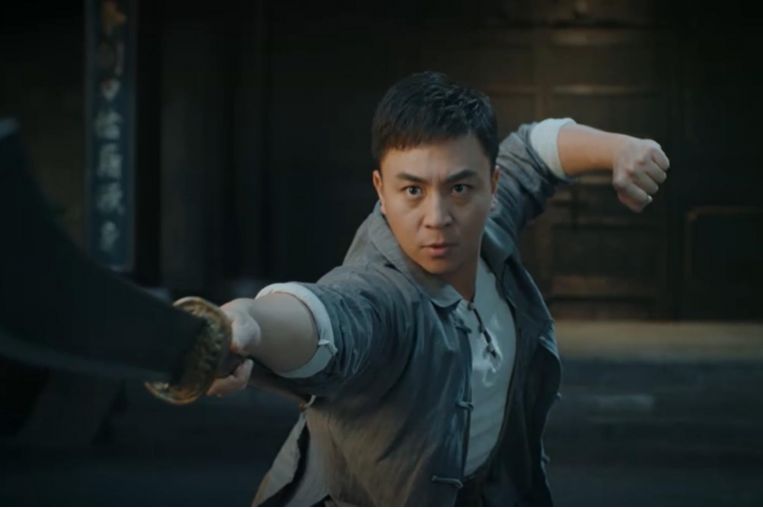HELSINKI — In a global race to dominate artificial intelligence technology, Europe needs to keep its urge to regulate under control — at least for now.
Thats the main message from Pekka Ala-Pietilä, a former president of Nokia and tech entrepreneur who is overseeing EU efforts to draw up principles that will underpin any future regulation of the technology.
At the head of a group including 52 experts drawn from business, research and civil society, the 61-year-olds job is to make sure Europe has a coherent approach to a technological arms race between China, the United States and, to a lesser degree, Europe.
Europe has to “make sure that we do regulate when its the right time but we dont do it prematurely when we would actually create impediments,” he told POLITICO.
By the end of this year, the group wants to draft two sets of guidelines. One document, which the EU hopes to adapt by next March, will spell out ethical principles while a second one will list recommendations for how to boost investment in Europe.
“Ethics and competitiveness are intertwined, theyre dovetailed” — Pekka Ala-Pietilä
Its Europes shot at defining the conditions under which AI can be deployed in its vast internal market — just as the worlds tech giants, the vast majority of whom come from the U.S. or China, are moving to establish their own set of standards.
“Ethics and competitiveness are intertwined, theyre dovetailed,” Ala-Pietilä said during an interview in the Finnish capital, describing his role as chairman of the group as “primus inter pares” (first among equals).
An economist by training, Ala-Pietilä spent more than two decades climbing the ranks of tech giant Nokia. He co-founded a tech company and sits on the boards of software companies SAP and Netcompany. In recent years, he has also ventured into politics, advising the Finnish government on tech policy.
As Europe pushes ahead with establishing principles for the use of artificial intelligence, Ala-Pietilä told POLITICO that for the Continent to be competitive, it equally has to avoid rushing into regulation.

Rules for how to implement AI technology shouldnt be based on pre-existing laws but rather take shape along with the technology itself, Ala-Pietilä argued | Image via iStock
Europe should now —“ex ante” (before the event) — come up with “broad horizontal principles” for the ethical use of AI “based on the core values in Europe,” he said.
But the actual rules for how to implement AI technology shouldnt be based on pre-existing laws but rather take shape along with the technology itself, as courts issue rulings for their use, he said:
“We foresee that it might be actually reasonable to think of the regulation as a common law-based phenomenon, where you regulate ex-post, you also give room for self-regulation and you … understand when to regulate and when not to regulate.”
Europe entering the global race for AI
A global race for AI — allowing machines to do jobs that previously required human thinking — has taken off and Europe, despite strong basic research, has so far been watching from the sidelines as American and Chinese tech firms battle over who will dominate the field.
The U.S. remains the world leader but China has caught up by boosting research and granting its AI industry subsidies and access to data from more than 1.4 billion citizens protected only by scant privacy laws.
In what was largely perceived as a response to Beijings ambitions, the Trump administration pledged to give American AI researchers and developers in the U.S. free rein, suggesting they dont need to fear overburdening regulation.
The status quo is that much of todays cutting-edge expertise in applied AI remains in the hands of a few private American and Chinese companies such as Google, Amazon or Alibaba.
The European Union laid out its own plan to enter the race in a strategy unveiled in April, not by copying the Chinese or American approach, but by becoming a world leader in ethically responsibly artificial intelligence. As AI increasingly raises concerns about privacy, discrimination and cybersecurity, the bloc wants to make the algorithmic decision-making process at the core of AI technologies transparent and set fair rules for their use. This, the EU hopes, will boost consumer trust in European AI applications.
Ala-Pietilä said he believes this will give companies “a great incentive to create products or services where ethics is part of their competitive advantage.”
But those plans aside, the status quo is that much of todays cutting-edge expertise in applied AI remains in the hands of a few private American and Chinese companies such as Google, Amazon or Alibaba.
“As a European it does [worry me,]” Ala-Pietilä acknowledged. “But the total picture is more multifaceted.”
Tech companies from abroad, he said, mainly operate in the business-to-consumer market. But there are “two other key markets, the business-to-business market, and the public-to-citizens services market” and Europe could likely become a world leader in those fields, he believes.
Science fiction to daily life
It was in the early 1980s when Ala-Pietilä, for the first time in his career, got acquainted with artificial intelligence.
He was finishing research at the Helsinki School of Economics and about to move over to the leadership of Nokia. During a visit to the company, he ran into a group of AI researchers that the companys then-CEO Kari Kairamo — “a very visionary man” — had invited over.

Unprecedented troves of data have turned artificial intelligence from a science-fiction scenario into day-to-day applications | Daniel Roland/AFP via Getty Images
“There was a lot of future, futuristic thoughts [about] what AI could do, but very, very little evidence,” he remembered. “First and foremost it was a visionary view what AI could do once technical capabilities would match the needed level of enablers to realize the vision.”
More than three decades later, that time has come: A recent boost in computing power, the emergence of cloud computing as well as unprecedented troves of data have turned artificial intelligence from a science-fiction scenario into day-to-day applications.
“We have seen something which is difficult to imagine,” Ala-Pietilä said, “which is when the acceleration is accelerated — the second derivative is accelerating.”
Slicing an elephant
His most imminent task is steering Europes AI expert group — described by its own members as “very very heterogeneous when it comes to opinions and backgrounds” — toward two sets of recommendations that everyone can agree on by the end of the year.
“You eat the elephant by slicing it,” he said, adding that the group has agreed on common targets and is currently working in smaller subgroups on “workable subsets,” which they plan to patch together “as a complete fabric when this project will come to a finishing line.”
Their recommendations will set the tone for the EUs upcoming rules for AI but Ala-Pietilä seemed surprised when asked whether the responsibility that comes with the job intimidates him.
“And those entities which can learn faster what works, what doesnt, and which can do the mid-term course corrections while they are learning, they will find the most rewarding roads of applying AI” — Pekka Ala-Pietilä
“It makes you very humble,” he replied, shifting the conversation back to the question of how to boost innovation through the right form of governance.
Referring to economist and Nobel Prize-winner Robert Solow, who wrote in 1957 that its not just labor and capital but also technological innovation that spurs economic growth, Ala-Pietilä said he believes the growth of Europes economy will depend, at least in part, on whether the Continent can come up with a regulatory framework for AI that fosters innovation.
“It will be difficult, but its almost down to a very simple thing, and this is: What is the capability of individuals, societies, corporations to learn?” he said.
“And those entities which can learn faster what works, what doesnt, and which can do the mid-term course corrections while they are learning, they will find the most rewarding roads of applying AI.”










